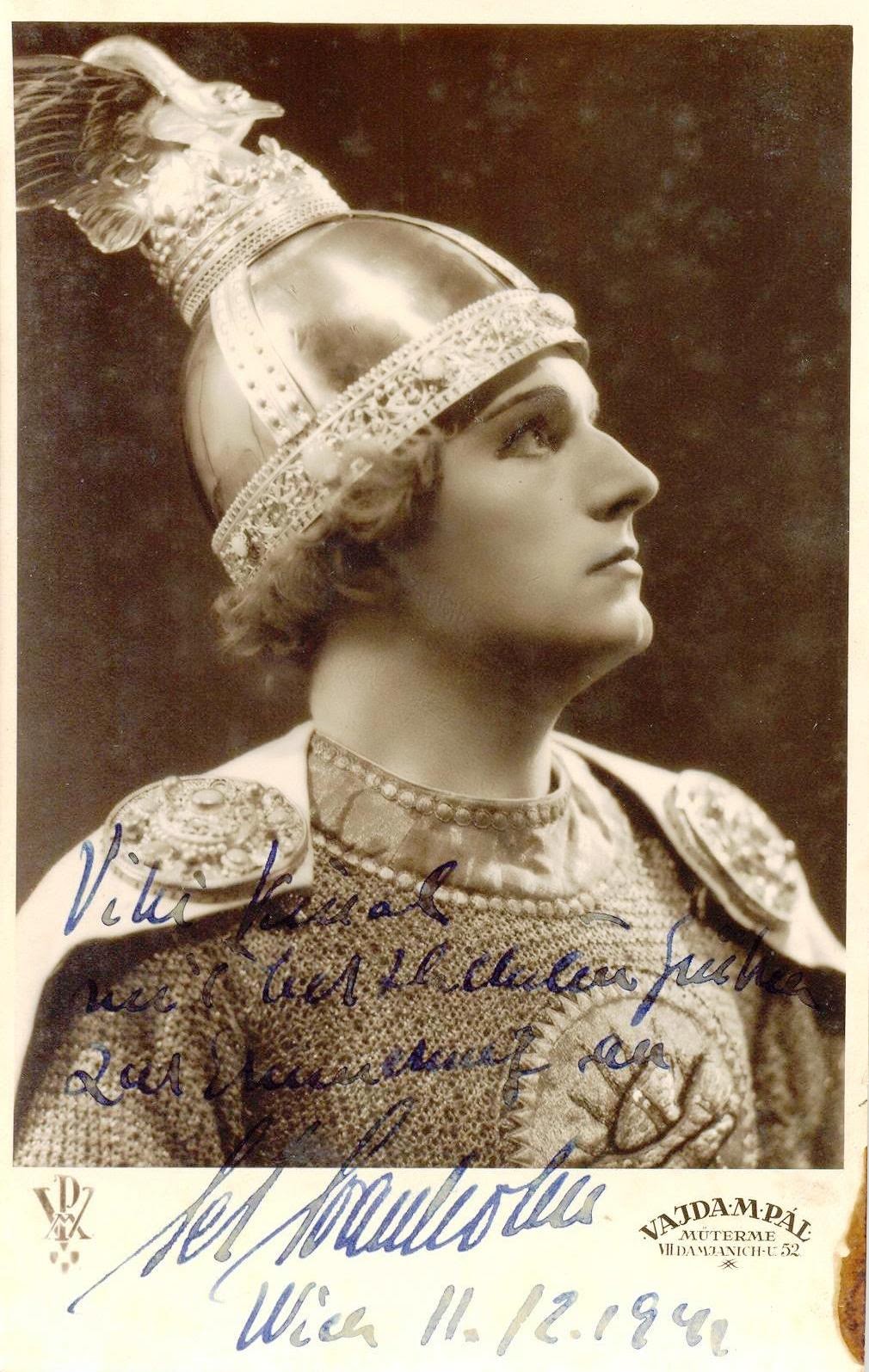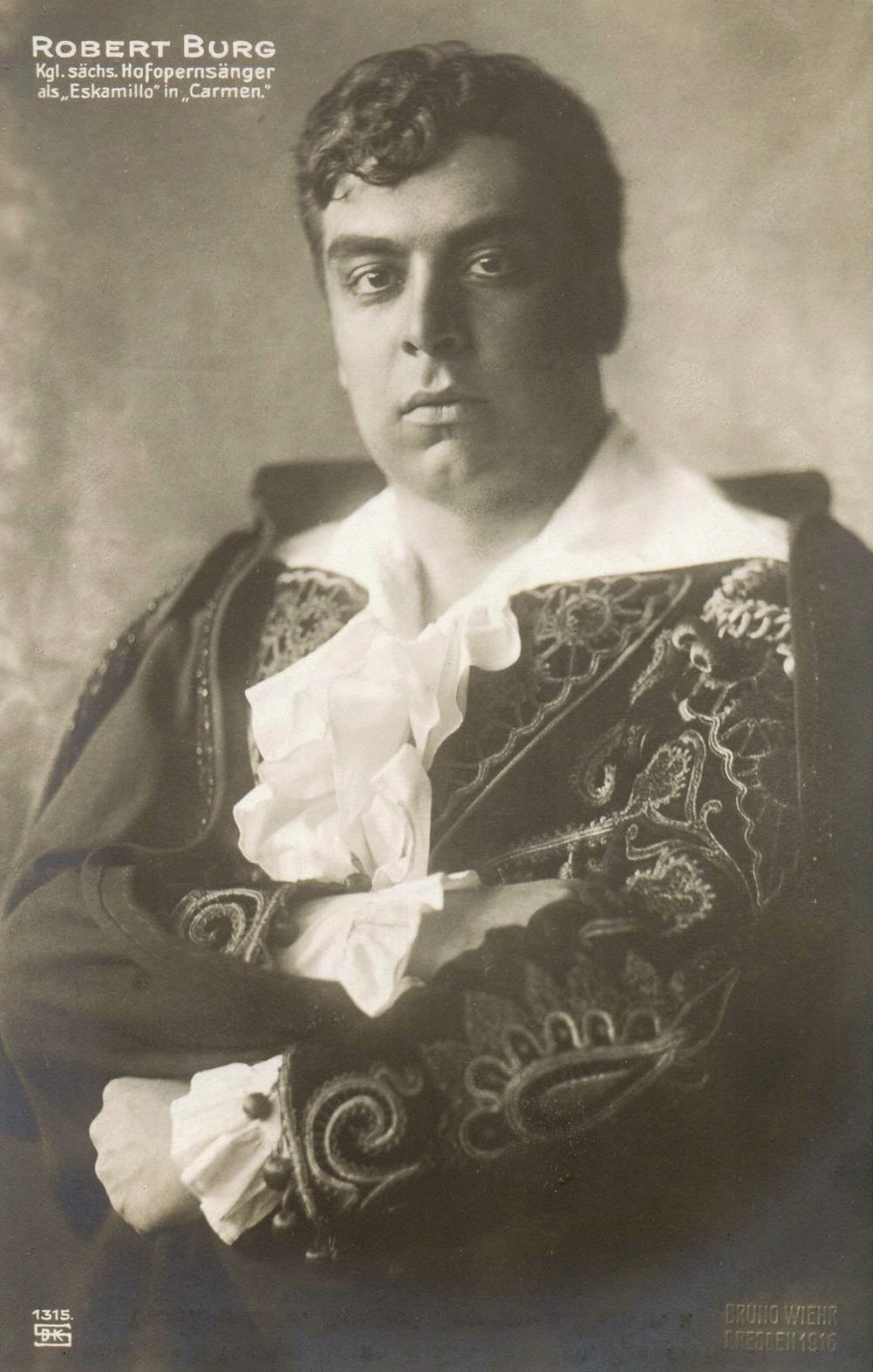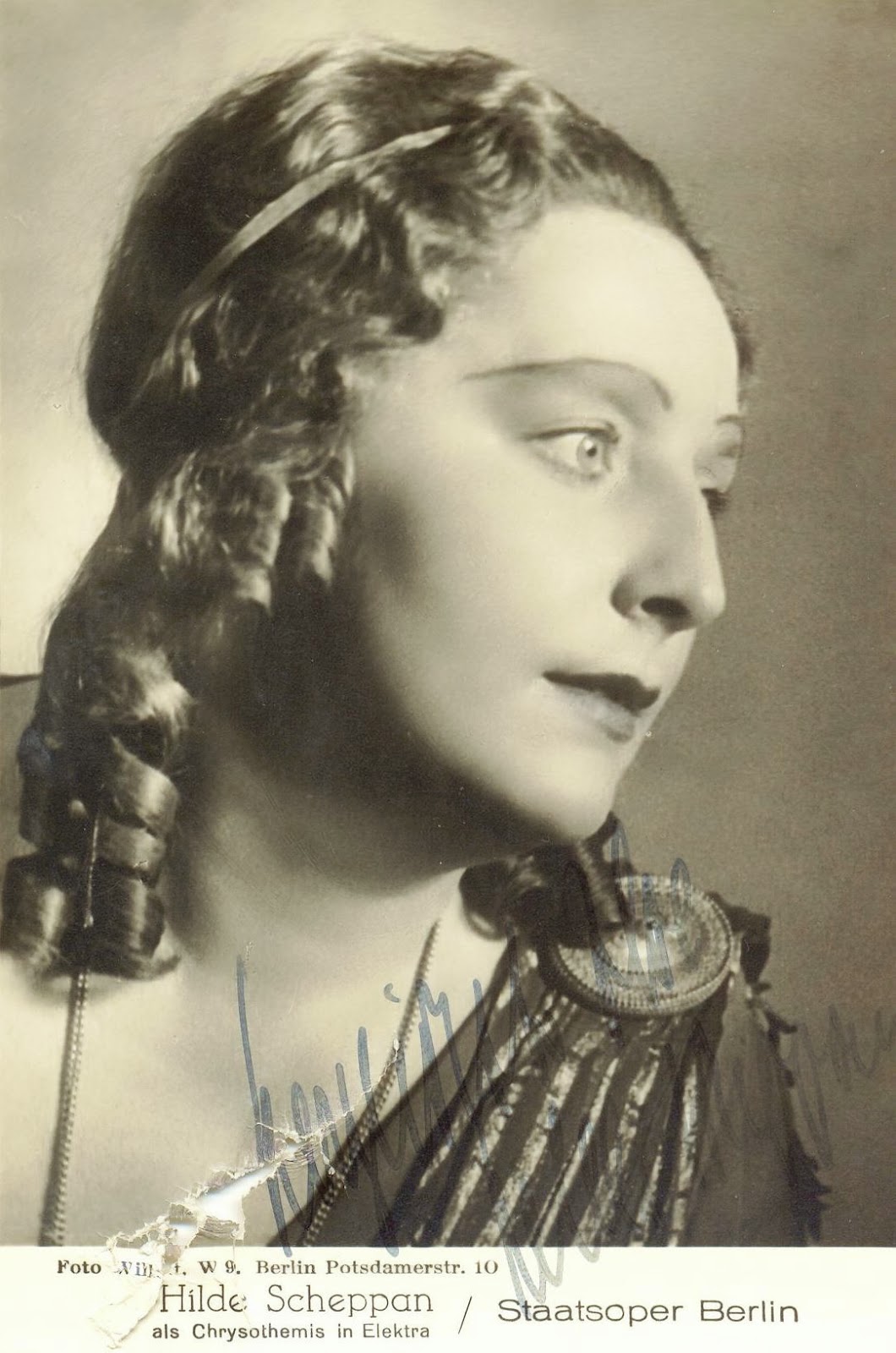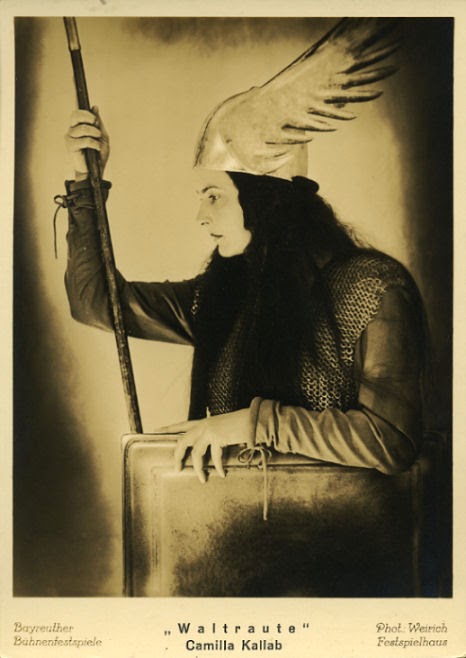 |
| Marta Fuchs als Brünnhilde in Götterdämmerung |
While surfing through Youtube investigating for some recordings I came over a complete recording of the Götterdämmerung from Bayreuth 1942. I listened a few minutes and was captured at once by the presence of this recording and the fine singers. I downloaded it and changed it to MP3. It was all in one big file, and so I undertook the work cutting it in listenabel pieces and write correct taggs for it. There are many sources for fine recordings in the web, but is is often much work to make them easily consumeable. Also you hear more, when you know more, and I did some research about the participating artists. This work can be shared, and that is what I want to do here. So here is the download, and a few remarks about the singers.
 |
| Cast list |
This time I had to cut the whole opera into threee pieces. They are numbered by sequence, and I propose that you put all the files in one folder after unzipping the three folders.
DOWNLOAD:
http://www.4shared.com/zip/apKQvqm8ce/Gtterdmmerung_1942_1_Aufzug_An.htmlhttp://www.4shared.com/zip/BQiDe24xce/Gtterdmmerung_1942_1_Aufzug_En.html
http://www.4shared.com/zip/vqHzh4N4ba/Gtterdmmerung_1942_3_Aufzug.html
The performance was directed by Karl Elmendorff. He has been active in Bayreuth since 1927, and the year 1942 was his last year in Bayreuth - don't know why he wasn't taken there anymore. I think he did a real good job. His Tristan from 1928, which I like very much, is already at my blog:
http://recordplayer78.blogspot.de/2012/07/tristan-und-isolde-bayreuth-1928.html
 |
| Set Svanholm, here probably as Lohengrin |
Siegfried is done by Set Svanholm. This was, exept for Eric in Der Fliegende Holländer the same year, his only appearence at Bayreuth. He was born 1904 and started relatively late as a singer (1930), first as a baritone (like Lauritz Melchior and some others). In 1937 he changed to tenor. After the war he had a long carreer at the Met and in Europe. He sang his last Tristan one year before his early death in 1964. We hear a bright voice with a fine timbre and a clear diction - just like the most of his fellow singers.
 |
| Marta Fuchs als Brünnhilde in Walküre |
Marta Fuchs (1898-1947) started as alto in 1923. From 1930 she sang at the Staatsoper Dresden and changed to dramatic soprano. Since 1935 she sang in Berlin and Dresden. She was a column of the Bayreuther Festspiele from 1933 to 1942, where she sang Kundry (1933-37), Isolde (1938) and Brünnhilde (1938-42). She had a huge voice with a dark timbre and was also estimated for her acting abilities. She also took part in the recording of the second Act of Walküre with Lauritz Melchior under Bruno Walter in 1936. I think she is on the same level as Frida Leider.
A surprise for me was the Waltraute of Camilla Kallab. I had never heard of her before and found out, that she was a noted singer but left only very few recordings and no commercially recorded discs at all.
She was born 1910 (the Sängerlexikon gives no year of her death) and made her debut 1930. She sang in Dresden 1930-34 and in Leipzig from 1934-44. In Dresden she took part in the premiere of Arabella (Strauss) on July 1st, 1933. After the war she sang for four years in Wiesbaden and then at the Komische Oper Berlin until the 1960ies. There is also a recording from her as Magdalena in Meistersinger from 1943 and another one from New York 1952, but that's it. We hear a fine alto (or mezzo - photos on the web show her also as Carmen), who does her great scene very well (Erzählung der Waltraute, Track 12). She also sings one of the three norns here.
 |
| Robert Burg (1890-1946) |
The only appearance of Alberich in Götterdämmerung is in the dream scene with Hagen at the beginning of the second act. Alberich is Robert Burg (1890-1946), who sang in Dresden from 1916 to 1944 and was one of the best Heldenbaritons of his time. In Bayreuth he was subscibed to the role of Alberich from 1933 to 1942 and also sang Klingsor in Parsifal 1934-39. Here is a postcard from my collection which shows him as Escamillo in Carmen. (I don't owe a photo of a Wagnerian role of him -- but I was glad that I found the two Marta Fuchs-Brünnhildes in my postcard collection).
These are the outstanding singers of this production. Also worth mentioning is basso Friedrich Dalberg as Hagen, but I have no photo of him. He was born in England as Frederick Dalrymple in 1908 and died 1988. He sang from 1931 to 1944 in Leipzig and after the war in Munich and in London (Covent Garden).
The three Rheintöchter do their job well, but I don 't want to write about the singers. As I have a photo in my collection of Hilde Scheppan, who is one of the three, I reproduce it here without further comments.
 |
| Hilde Scheppan as Chrysosthemis in Elektra ca. 1941 |
I think this is a recording of high intensity, and for me it was the first time that I have listened to the Götterdämmerung in whole on one occasion. Before I only listened to single acts or scenes. The plot of the last part of the Ring always seemed a bit confusing for me and not as "organic" as in the other parts: Siegfried and Brünnhilde are deeply in love, but he forgets her soon (even if it is a magic potion which makes this) and she is frustrated and plans to murder her great love through the one who has alienated her from Siegfried - that is a lot to swallow! But - this is a recording with a high tension, not a single singer has dissapointed me, and for everyone who wants to make his peace with the Götterdämmerung this recording is a good occasion, especially when you read the text (or a good translation) while listening.
Elmendorff builds a high tension in many scenes (rape scene of Brünnhilde Track 13, 14), but also has unusual lyrical and intimate moments, which you would not expect in Bayreuth in 1942, when heroic tones were more usual. Examples for this are the Erzählung der Waltraute (Track 12) and Siegfried's death (Track 25).
The only blemish is that the last two minutes of the second act are missing in the recording.
PS. The recording came from here:
 |
| Camilla Kallab |

